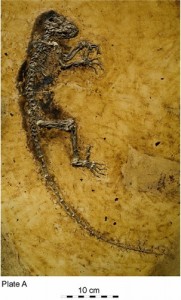The Decade’s Worst Moments in Science
If yesterday had the decade's best moments, then today we have to bring you the worst (again, in ascending order):
10. A cult claims they've cloned a human: Clonaid, a company with ties to the Raëlian UFO cult, announced in late December 2002 that they had successfully cloned a human woman, naming the child "Eve." The media quickly latched on to the story and though over the next two years Clonaid claimed to have produced several other clones, the company never provided any proof, like, say, a baby and her mom who would undergo DNA testing.
9. Pluto is demoted from planet status: Poor Pluto was demoted from its status as a planet when a vote by the International Astronomical Union defined a planet in such a way that left Pluto out, reclassified as a "dwarf planet." Reaction was mixed, with many rejecting the new terminology. New Mexico and Illinois, for example, overruled the reclassification; in those states, Pluto will always be a planet. And "pluto" became a verb, meaning "to demote or devalue someone or something."
8. Gene therapy deaths: At the beginning of the decade, the University of Pennsylvania's gene therapy trials were shut down by the Food and Drug Administration in response to the death of trial participant Jesse Gelsinger at the end of 1999. Later, several children being treated in a gene therapy trial for a type of severe combined immunodeficiency, which had appeared to be a success, developed leukemia as a result of the treatment.
7. A fossil named "Ida": Earlier this year, a 47-million-year-old fossil primate, nicknamed "Ida", was all over the news, touted at a press conference and featured in a book and documentary as the "missing link." Ida may or may not be a human ancestor, but her tale is one that is more of hype than history.
6. The Space Shuttle Columbia accident: On February 1, 2003, Columbia disintegrated over Texas during re-entry. All seven astronauts were killed.
5. Rise of the anti-vaccination movement: There have always been people who have distrusted vaccines, but the last decade has seen an upswing following now-discredited studies proposing a link between childhood vaccinations and autism. Though the link was quickly debunked, childhood vaccination rates in some areas have declined, leading to outbreaks of diseases such as measles and diphtheria.
4. Engineering shortfalls meet Hurricane Katrina: In Mississippi, strong winds and a large storm surge caused much of the damage from Hurricane Katrina. The storm was a disaster for New Orleans, though, because poorly engineered levees failed, flooding much of the city.
3. Hwang Woo-Suk fabricates human stem cell research: In 2004, South Korean biologist Hwang Woo-Suk was at the top of the science world, with claims that he was the first to clone a human embryo and successfully extract stem cells from it. The next year, he claimed to have produced more stem cell lines. But it was all a lie. Hwang had fabricated much of his data. And in October of this year, Hwang was convicted of embezzlement and bioethical violations and given a two-year suspended prison sentence.
2. Jan Hendrik Schön is exposed as a serial scientific fraud: Jan Hendrik Schön was a physicist at Bell Labs, working in the areas of nanotechnology and condensed matter physics, noted for his prolific publication record. Then scientists started noticing anomalies in his work, such as two experiments producing the same a graph with the same noise. An investigation revealed multiple instances of scientific misconduct, including that Schön reused data sets and produced graphs using mathematical equations instead of experimental data. The physics fraud was immediately fired.
1. Earth's wildlife takes a beating: Honey bees are disappearing around the world. More than a million bats in the northeatern United States have died, their faces covered with a mysterious white fungus. Amphibian species are going extinct at an alarming rate. Habitat destruction continues around the globe. Makes you wonder what will still be around in the next 10 years.
/https://tf-cmsv2-smithsonianmag-media.s3.amazonaws.com/accounts/headshot/Sarah-Zielinski-240.jpg)

/https://tf-cmsv2-smithsonianmag-media.s3.amazonaws.com/accounts/headshot/Sarah-Zielinski-240.jpg)